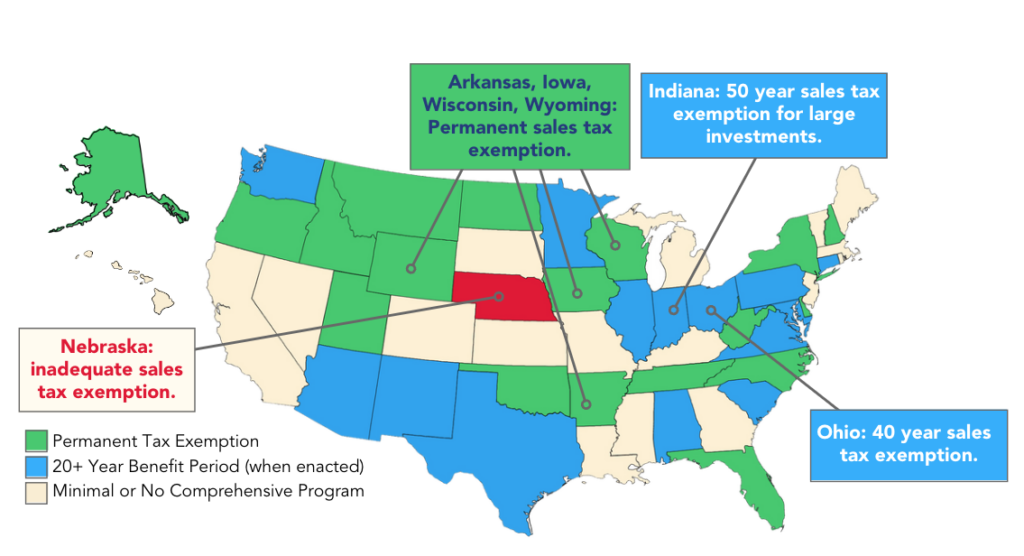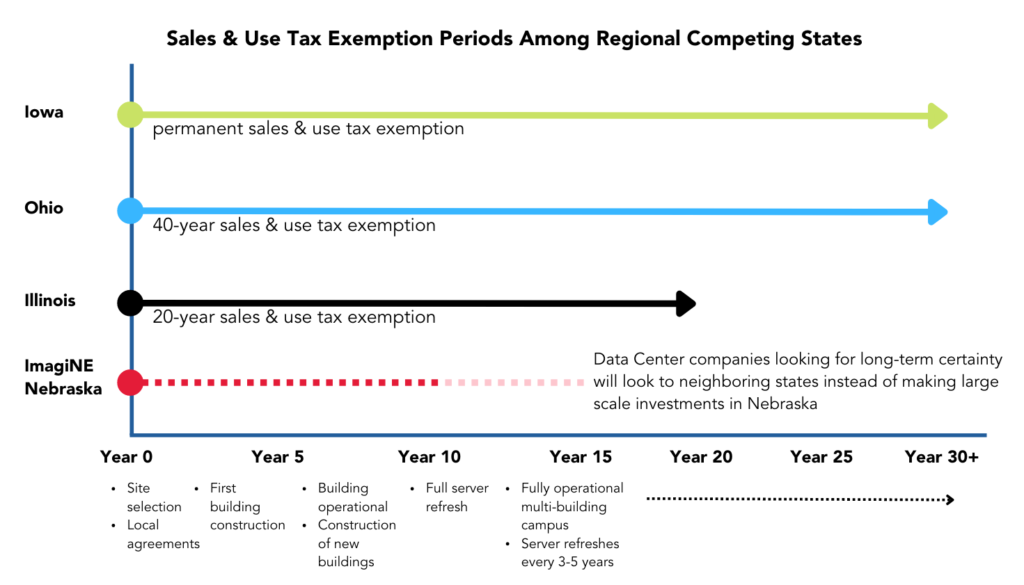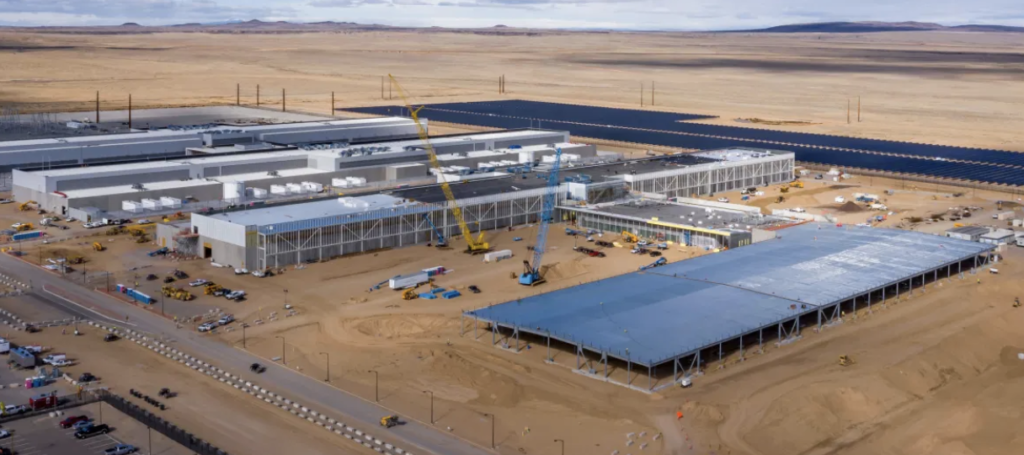How do enterprise data centers help Nebraska?
America’s networks and data centers enable all that we do online today. Enterprise data centers create tech jobs, boost the local economy, and support a better online community everywhere.
The Nebraska Advantage program successfully attracted hyperscale data centers to the state, leading to new jobs, tax revenue and spending for Nebraska businesses. In fact, a 2022 Mangum Economics study demonstrates the economic benefits of data centers in Nebraska, both directly and in ripple effects that generate benefits statewide.
“Data centers have generated business for Nebraska companies that are critical pieces of the data center supply chain that in turn generate economic activity and growth for other businesses in Nebraska.”
Mangum Economics Study, 2022 (two-page summary)
But Nebraska’s ImagiNE program is insufficient to attract additional data centers to the state.
ImagiNE is a good program for medium sized projects, but doesn’t scale for billion-dollar investments because it offers only short-term certainty—fewer than 15 years. Nebraska has strong technical and construction talent, abundant large sites and a high quality of life.
Data center companies comparing programs of regional competing states are finding significantly more certainty and longer exemptions outside of Nebraska. Nebraska should join other states that provide qualified data centers sales tax treatment similar to manufacturers, through a 20+ year sales tax exemption on data center equipment.

A data center that begins construction today under ImagiNE would meet the investment threshold almost immediately, so it would have only 10 years of sales tax exemption. But data center servers are installed after construction and then replaced every three to five years. Nebraska data centers can benefit from only two replacement cycles, unlike data centers in states with longer—or even permanent—exemptions. ImagiNE just doesn’t provide long-term tax treatment that is adequate to attract billion dollar data center investments.

A simple data center sales tax exemption, like LB 209, would make Nebraska competitive again.
Nebraska can maintain its competitive business climate by joining 30+ other states that provide qualified data centers long-term certainty through a sales tax exemption on data center equipment, and position the state to attract new hyperscale data center investments.
Read more about the importance of a new sales tax exemption in Nebraska, like that proposed in LB 209, to bring billions in new investment and high-paying jobs to the state.
An enterprise data center is typically a $750 million dollar investment, larger than smaller co-location data centers. According to the 2022 Mangum Economics study, data centers in Nebraska drive:
- 1,200 construction jobs
- Almost 300 non-construction jobs
- $270 million in economic output to the local economy during construction
And current data centers support:
- 490 full-time employees
- $1.3 billion in economic output to Nebraska’s economy
- $17.8 million collected in state taxes and $18 million collected in local taxes (in 2021 alone)

An enterprise data center creates annual revenue for your state and local governments from:
- Income taxes paid by employees and contractors
- Corporate income taxes from data center operators & contractors
- Sales taxes on non-exempt equipment and supplies
- Lodging taxes for visits by contractors and workers
- Sales taxes on business services
- Local real estate & personal property taxes
Read more about that about the tax revenue new enterprise data centers have brought Nebraska in a 2022 report by Mangum Economics here.
If Nebraska were to incentivize data center investments with a sales tax exemption on equipment, Nebraska could enjoy by 2035:
- Nearly $5 billion in economic output activity associated with data center operations
- Over $1 billion in pay and benefits for workers throughout Nebraska’s economy
- 2,670 operational data center jobs and over 11,000 additional jobs supported in the Nebraska economy from data center presence
According to the 2022 Mangum Economics study.
- Facebook and Google are committed to using renewable energy in their enterprise data centers
- Sourcing 24/7 carbon-free energy for all data center operations
- Producing over seven billion kilowatt-hours of electricity from
- Wind farms
- Solar photovoltaic energy production
- Waste conversion into electricity

Enterprise data centers connect to high-capacity networks by building network infrastructure that can be used by schools, colleges, health institutions, and more.
- In North Carolina andNew Mexico, like in other states, Facebook brought high-speed internet to five counties in a new internet fiber route
- Microsoft’s Airband Initiative brings high-speed internet to rural America, partnering with multiple broadband service companies for the effort

